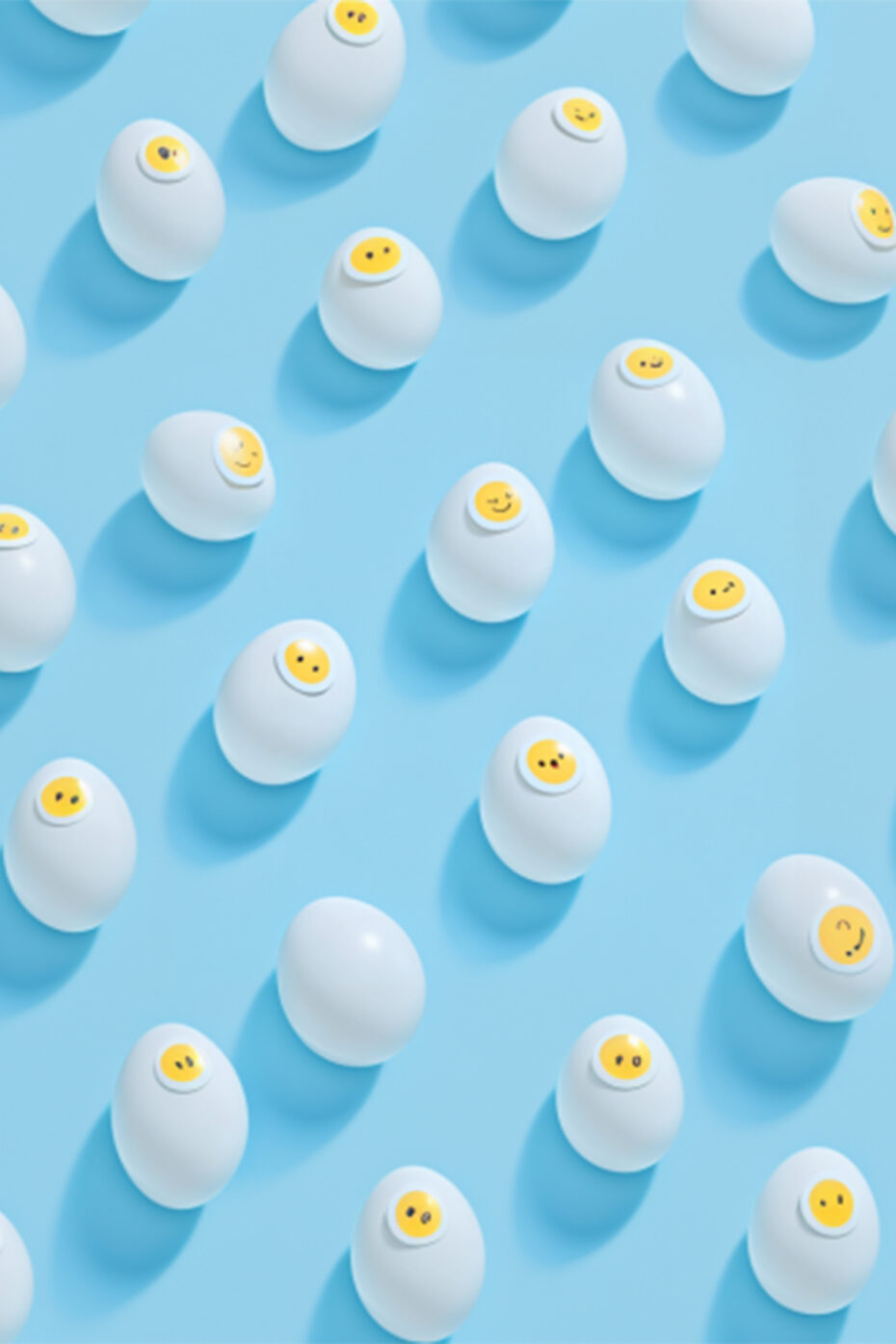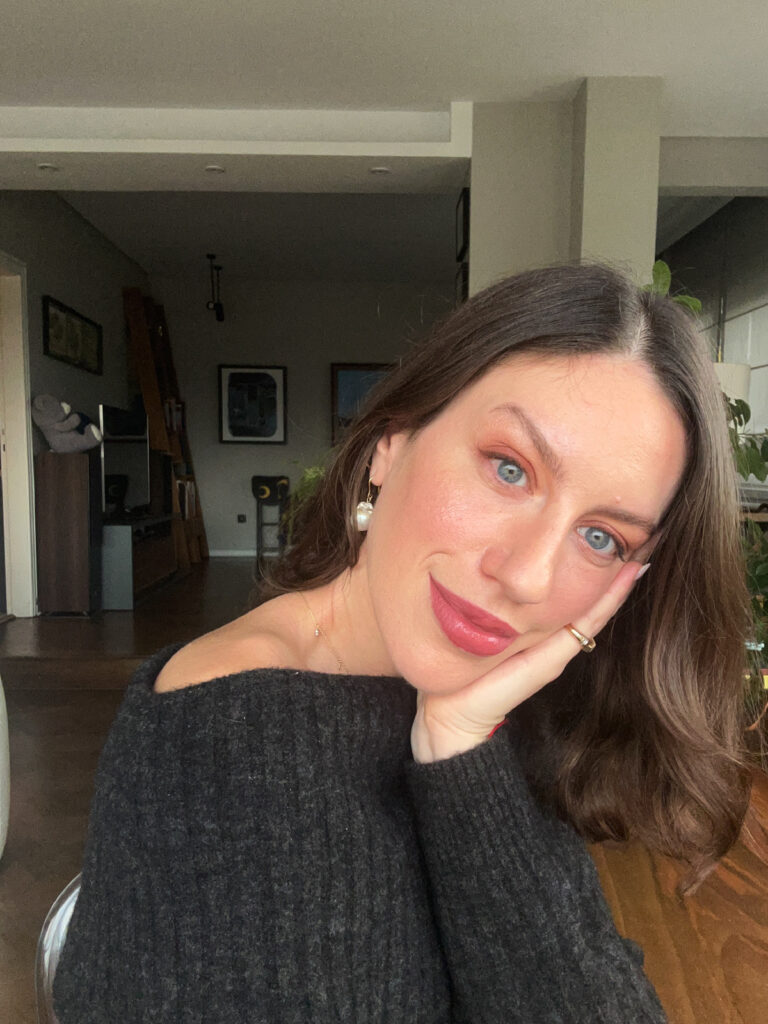
Image: AI generated by Pınar Sarıer
Stories
Why Are We All Freezing Our Eggs?
Sometime in the last 5 years all my child-free friends in their thirties started freezing their eggs. But is this a smart plan for our future or a scam preying on women by the IVF industry? Esen Boyacigiller explores the booming, 34.7 billion dollar fertility industry.
Text Esen Boyacıgiller
I was the guinea pig. In 2020, at the height of the pandemic, I froze my eggs for the first time. I hadn’t been thinking about it much, to be honest, until that point, but I figured, well, we aren’t really going anywhere, so it’s as good a time as any. I did it in Turkey, where it is significantly cheaper than in America, where I am from (one round of egg freezing cost less than $3,000 in Turkey in 2020, if I remember correctly. In NYC, one round can cost up to $20,000, procedure and meds included). It was quick and easy; the emotional toll of it is far greater. At the time, none of my friends were doing it to preserve their fertility—only those struggling to conceive naturally (ugh, what a gross phrase). However, over the last 5 years, it seems like most of my single friends have done it or considered it. One by one, I started hearing about friends and friends of friends going through the process. Everyone responds differently, with varying results. Some find it easy, while others find it painful and emotionally extremely challenging. But is this a wonderful and empowering way to plan for our future and buy some time or a scam created by the fertility industry to prey on vulnerable women?
The first experiments in fertilizing eggs in vitro (fertilization outside the body) occurred in the mid-1900s on animals. In 1960, the first successful IVF took place on rabbits. In 1978, the world’s first IVF baby was born; less than 50 years ago. By the 1980s, the industry started expanding, from the UK to the US and Australia. The industry grew rapidly and by the 2000s, clinics were popping up everywhere; infertility was big business. I mean, no surprise, right? What is worth spending more money on than starting a family?
The process involves taking hormones for about 10 days on average. Your IVF doctor will choose a variety of medications that you will self-inject at home daily, sometimes up to three or more a day. By the end of the 10 days, ideally, the hormones stimulate the growth of eggs ready for retrieval under anesthesia. The procedure is quick (20-ish minutes). Afterwards, the eggs are rated as mature (fully developed) or not mature. Good outcomes vary based on age, of course. The best age to do it is in your twenties, but who is thinking of freezing at that age? Your fertility declines precipitously after 35. The average age women freeze their eggs in the US is 37.4, and almost half of American women freeze them after the age of 35. Ten eggs retrieved is good. Twenty or more is great. According to most IVF studies, 20 eggs retrieved gives you a 50-70% chance of having one baby and a 14-32% chance of having two or more (springfertility.com; no affiliation).
Sounds easy enough, right? Not so fast. The entire process is a lot more challenging than it would seem at first glance. And of course, there’s a more troubling side to the industry. The hormones taken are strong and cause all sorts of side effects like extreme mood swings (mimicking the worst PMS you’ve ever had), cramps, nausea, fatigue, increased appetite, and headaches. Then there are the more dangerous and extreme cases, where the ovaries become overstimulated; this can be very painful and dangerous.
Add in the emotional toll. When I went through the process I had to ask myself all sorts of sensitive questions I had never really considered before. ‘What if I don’t get enough to potentially produce a baby in the end?’ ‘How do I feel about adoption?’ ‘What if I don’t meet someone?’ ‘How many times can I do this?’ ‘How important is this to me?’ ‘Can I picture my life without a child?’ ‘How much do I like sleeping and my alone time and my peace?’ I only found out after freezing my eggs that you have to be married in Turkey to even use them. I’ll never forget my doctor asking me if I would like to use a sperm donor and if I knew of anyone I would like to do it with. ‘Sir, if I had that option we wouldn’t be here, now would we?’ Also, isn’t that too soon? Sperm donor? What if I made embryos with a stranger and met my partner the next day and had wasted some eggs on him? My brain spiraled.
I was surprised to find it made me question my womanhood. Isn’t this what we are made to do? Procreate? What if you can’t? Last winter, two friends and I went through the process at the same time, to varying results. Some of us retrieved more eggs, while others were more secretive about the process. All varying levels of sensitivity and comfortability around it all. I found myself feeling weirdly competitive. To be fair, the hormones made me crazy. I was all over the place, exploding at the littlest things, crying at #hopecore Tiktoks. The meds made me broody, which I never was before. But of course it’s natural, because your body is mimicking the physiological experience of being pregnant and it’s rather inconvenient if you feel you don’t want one while pregnant. I was shocked at how I was feeling. It was an out-of-body experience. Once I came off the meds, I went right back to my former self (well within a month). Not obsessed with having a baby at all, and much more stable moods. It takes a toll on you.
Then there are the deeper controversies surrounding the industry. There have been numerous doctors that have inseminated women with their own sperm. Others find ethical issues with sperm donors being able to produce as many offspring as they like. A Netflix series featured a donor that produced over 600 children; the psychologist in the series posits that someone with low self-worth may do this to feel valuable. There have been mixups where clinics used the wrong eggs to create an embryo, parents only realizing after the fact. The New York Times had an article recently about two families that realized this but only after taking care and bonding with their non-biological baby for two whole months. There have been embryos forgotten in freezers that were discovered decades later, many years after one 60-year-old woman’s ability to conceive had dissipated. Government oversight varies by country, and there is no central governing body in the US, for example.
Many people do multiple rounds and go into debt. A 2018 study reports over 70% of couples that did IVF in 2018 reported financial difficulties. Gay and lesbian couples considering the process face additional challenges. Gay couples require a gestational carrier, which is exorbitantly expensive, costing up to $200,000.
Meanwhile, I decided to freeze my eggs again in New York. That was a very different experience. I went to one of New York’s best centers (NYU) and it was like a factory. Also worth mentioning that most of the women there going through the procedure were white (reports show 70% are white women). I was super frustrated that my doctor there made me feel nervous and anxious about the entire process. Thankfully, I adore my gynecologist in Turkey who is very gentle and chill, but I believe the fear they create about geriatric pregnancies (what a pregnancy over age 35 is insensitively called) and our declining fertility is preying on women and also misinformed. Yes, fertility does seem to decline, but join one of the many Facebook fertility groups and for every woman that is having trouble conceiving, there are an equal number that post about suddenly conceiving despite abysmal AMH levels (a marker of fertility).
And this brings me to my final point: how useful is egg freezing, really? You invest so much time, money, and energy into the process—but here’s the reality. Only 6-10% of women who freeze their eggs actually end up using them, according to a study by the Human Fertilisation and Embryology Authority (HFEA). Many women conceive naturally, even after freezing their eggs. So, why are we placing such emphasis on this option?
All in all, I am glad I froze my eggs. It has given me some freedom and peace of mind but I think it has also (perhaps ill-advised?) allowed me to buy time in the decision-making process. Not being able to freeze them and being on that dreaded ‘fertility clock’ forces you to make a decision, whether you are ready or not.





